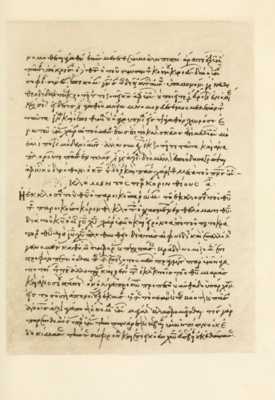Hi everyone,
This is, I'm afraid, another God-bothering post. If this isn't your cup of tea, that's fine, but it was an idea I wanted to work with.
Regular readers will know that recently I've been puzzling over the question of why the Catholic and Evangelical strands of Christianity seem so utterly at odds with each other. I think that at the bottom of the disagreement is a fundamental misunderstanding on the Evangelical side about what Catholics believe. A
fairly representative comment is this -
Roman Catholics know about Christ, but do not know Him personally, therefore they are trying to work their way to Him. Roman Catholicism is essentially a religion of works and not of grace as taught in the Scriptures.
Merits are earned, or even purchased with money, yet the assurance and joy of salvation are ever absent no matter how much satisfaction may be derived from sincere worship, conscientious living, or laudable good works.
This is almost precisely the opposite of what the Church of Rome teaches. The Catholic Catechism is clear that salvation is simply down to an act of God’s grace, made possible by Christ’s sacrifice on the cross. It states that -
Justification detaches man from sin which contradicts the love of God, and purifies his heart of sin. Justification follows upon God's merciful initiative of offering forgiveness. It reconciles man with God. It frees from the enslavement to sin, and it heals. … Justification is at the same time the acceptance of God's righteousness through faith in Jesus Christ …. Justification has been merited for us by the Passion of Christ who offered himself on the cross as a living victim, holy and pleasing to God, and whose blood has become the instrument of atonement for the sins of all men … Our justification comes from the grace of God. (§§1990-1996).
We must accept the offer of forgiveness from God which is made possible by the Cross.

The Church is clear that works cannot grant salvation: “Since the initiative belongs to God in the order of grace, no one can merit the initial grace of forgiveness and justification, at the beginning of conversion.” (Catechism, §2010).
Pope Francis has been at pains to emphasise both points. In his encyclical Lumen Fidei, he said (at §19) that
In accepting the gift of faith, believers become a new creation; they receive a new being; as God’s children, they are now "sons in the Son". … [Pope Francis emphasises the teaching of the apostle Paul, who] rejects the attitude of those who would consider themselves justified before God on the basis of their own works. Such people, even when they obey the commandments and do good works, are centred on themselves; they fail to realize that goodness comes from God. Those who live this way, who want to be the source of their own righteousness, find that the latter is soon depleted and that they are unable even to keep the law. They become closed in on themselves and isolated from the Lord and from others; their lives become futile and their works barren, like a tree far from water …. The beginning of salvation is openness to something prior to ourselves, to a primordial gift that affirms life and sustains it in being. Only by being open to and acknowledging this gift can we be transformed, experience salvation and bear good fruit. Salvation by faith means recognizing the primacy of God’s gift. As Saint Paul puts it: "By grace you have been saved through faith, and this is not your own doing; it is the gift of God" (Eph 2:8).”

Recently I've been putting some time into reading the non-canonical epistle
1 Clement, which suggests that both sides are missing the point when they get bound up in a quarrel over faith vs works. The epistle says
... we who through his will have been called in Christ Jesus are justified, not by ourselves, or through our wisdom or understanding or godliness, or the works that we have done in holiness of heart, but by faith, by which all men from the beginning have been justified by Almighty God, to whom be glory world without end. Amen.
What, then, shall we do, brethren? Shall we cease from well-doing, and abandon charity? May the Master never allow that this should happen to us! but let us rather with diligence and zeal hasten to fulfil every good work.
For the Maker and Lord of all things rejoiceth in his works. By his supreme power he founded the heavens, and by his incomprehensible understanding he ordered them. The earth he separated from the water that surrounded it, and fixed it on the firm foundation of his own will. The animals which inhabit therein he commanded to be by his ordinance. Having made beforehand the sea and the animals that are therein, he shut them in by his own power.
Man, the most excellent of all animals, infinite in faculty, he moulded with his holy and faultless hands, in the impress of his likeness. For thus saith God: Let us make man in our own image, and after our own likeness. And God made man. Male and female made he them.
When, therefore, he had finished all things, he praised and blessed them, and said, Be fruitful, and multiply. Let us see, therefore, how all the just have been adorned with good works. Yea, the Lord himself rejoiced when he had adorned himself with his works. Having, therefore, this example, let us come in without shrinking to his will; let us work with all our strength the work of righteousness.
The good workman receiveth boldly the bread of his labour, but the slothful and remiss looketh not his employer in the face. It is therefore right that we should be zealous in well-doing, for from Him are all things; for he telleth us beforehand, Behold the Lord cometh, and his reward is before his face, to give to every one according to his work. He exhorteth us, therefore, with this reward in view, to strive with our whole heart not to be slothful or remiss towards every good work.
Let our glorying and our confidence be in him; let us submit ourselves to his will; let us consider the whole multitude of his angels, how they stand by and serve his will. For the scripture saith, Ten thousand times ten thousand stood beside him, and thousands of thousands served him; and they cried, Holy, holy, holy Lord of Sabaoth! all creation is full of his glory. And let us, being gathered together in harmony and a good conscience, cry earnestly, as it were with one mouth, unto him, that we may become partakers of his great and glorious promises; for he saith, Eye hath not seen, and ear hath not heard, neither hath there entered into the heart of man, what things he hath prepared for them that wait for him.
(1 Clem. 32:4-34:5)
The New Testament has a tension between the ethereal, relationship-based faith found in epistles of Paul and the earthy, practical, workmanlike faith in the epistles of James, Peter and John. Clement's command that we should start with faith and continue with works resolves this tension without harm to either side. If Catholics and Evangelicals are serious about leading a good life, then professing faith is only the start of the task, even if that step is critical. Even seeking a
"personal relationship with Jesus Christ" (while necessary) carries a whiff of self-centredness. But the practical steps we take in His name make us a living cogwheel in the working machinery that will build a new heaven and a new earth.



